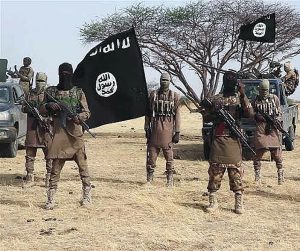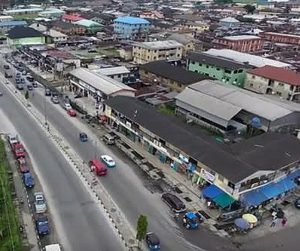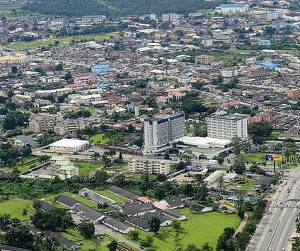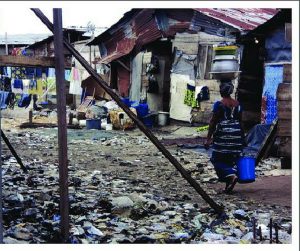Most Dangerous Places to Live in Nigeria: Nigeria is one of the best countries in Africa to live in. Nigeria is the sixth-largest producer of crude oil in the world and one of the continent’s heavyweights. It also serves as the continent’s economic hub. For both European tourists and American expats, this West African nation has emerged as a top travel destination. However, for your own protection, there are still a few areas in Nigeria that you should avoid. These are by far the worst areas to live in Nigeria, in no particular order.
As of September 2024, these are the riskiest places in Nigeria to live. These were carefully chosen in consideration of issues such as the murder rate, kidnapping, arson, carjacking, pollution, terrorism, and other crimes.
Recommended: Best Ways To Make Money As A Musician
Most Dangerous & Threatening Cites To Live In Nigeria 2024
1. Chibok, Borno State: One of the most dangerous areas to live in Nigeria is Borno state, which located in the country’s northeast. Attacks from Boko Haram and other armed groups have been ongoing in this area since 2011. Violence and other crimes have increased in this state over the past few years as a result of the Boko Haram conflict. The terrorists have murdered tens of thousands of people, kidnapped women and children, and destroyed millions of naira’s worth of property.

When this Islamic organisation kidnapped 276 students from the Chibok secondary school in Chibok, Borno, in 2013, it garnered notice on a global scale. This action sparked the very popular #bringbackourgirls campaign to secure these girls on social media and nonprofit websites.
It wasn’t until January 2017 that a breakthrough occurred with the release of the first batch, which included 21 girls. Four months later, 82 more of the Chibok schoolgirls who had been abducted were freed as a result of cooperation between the Department of State Services (DSS), the military, the Swiss government, and the International Committee of the Red Cross (ICRC). The other 96 Chibok girls are still being held captive. It’s like being given the death sentence to live in Borno state. Reporters and assistance organisations have not been allowed to visit Borno State in a way that is appropriate due to the high level of instability and security threat there.
Borno State has suffered the most fatalities out of all the Boko Haram attacks in Nigeria. The Nigerian military was forced to send soldiers to the area to offer security due to the severity of the attacks. Little has changed since the 2015 decision to move the Nigerian defence headquarters to Borno State as part of a strategy to combat Boko Haram.
Also see: How To Become a Successful Entrepreneur
2. Kano, Kano State: Another awful state to live in if you’re considering coming to Nigeria is Kano State. In this state, the security threat classification is almost critical. Over 32 Boko Haram militants assaulted and attacked Kano state’s villages and towns in 2012, killing over 150 residents.

Thousands of people have been killed and injured as a result of the Boko Haram insurgency’s pervasive violence in Kano State throughout the years. At least 1,000 people have died as a result of suicide bombings and other violent acts carried out by Boko Haram members since 2013. Being a devoted Christian, Muslim, or missionary in this setting is also challenging. Attacks by Boko Haram on marketplaces, mosques, and places of worship are at an all-time high.
Additionally, these attacks have damaged the socioeconomic operations in the state.
Apart from that, Kano is one of the least developed regions in Nigeria despite having one of the country’s largest markets.
Kano State’s agriculture is its strongest suit. When it comes to planting and harvesting groundnuts, beans, corn, millet and even cattle farming, its residents are quite knowledgeable. However, because of poverty and insufficient government assistance, farmers are only able to engage in agriculture on a limited scale.
Recommended: Countries With The Highest Rate Of Cybercrime
3. Warri, Delta State: When it comes to one of the riskiest places to live in Nigeria, Warri is a serious candidate for the top spot. Warri is frequently referred to as Nigeria’s Ajegunle. It’s a tough, unforgiving place where you could run into the good, terrible, and ugly all at once. One of the riskiest locations to live in Nigeria, the city has long been plagued by political violence and other criminal activity.

Warri is among the worst places to live in Nigeria, despite the fact that the cost of living is fairly low here. Warri is a centre for oil theft and illegal refining. This indicates that at any given time, there are at least 70 illicit refineries functioning in Warri and its surroundings. Due to inadequate maintenance, a lack of safety precautions, and the use of subpar materials during the construction of these illicit refineries, there have been numerous explosions in these regions. Despite being an oil-rich region, this area has substantially below-average infrastructure. Cultism is one of its notable bad behaviours, among others. In terms of cultism, Warri is only second to Port Harcourt.
Cultists have occasionally acknowledged picking JSS 2 students as recruits. The majority of young people in these areas are jobless and would rather steal and use the internet to defraud people than go to school or get a job they can be proud of.
4. Port Harcourt, Rivers State: There are 3 million people living in the city, according to latest data. As a result, it ranks among Nigeria’s largest cities along with Lagos and Kano. However, Port Harcourt faces challenges due to insufficient planning for the development of necessary infrastructure and the delivery of crucial services like water supply and sanitary facilities.

There is no safe haven for a new family in Port Harcourt, there are currently more than 50 active cults. The majority of these factions care more about their financial well-being than territorial disputes. These cultists primarily operate on the state’s several campuses. Because most of their operations are conducted clandestinely and are properly covered up by the nation’s security authorities, they rarely make headlines.
However, you see a lot of young people between the ages of 16 and 33 being detained off-campus for crimes including armed robbery, murder, kidnapping, computer fraud, and domestic abuse. They continue to commit terrible deeds despite being discovered, barred from returning, rusticated, or arrested. They simply have the opportunity to begin working. Due to the high level of social unrest and insecurity, Port Harcourt is by far the worst city in Nigeria to raise a family.
5. Ajegunle, State of Lagos: Lagos is a city that has a fair amount of instability. The amount of facilities in the state that are now available is insufficient to meet the population’s need. Lagos is the most prosperous and smallest city in West Africa, making it seem like a shelter and a lighthouse to those with lofty aspirations. Sometimes Lagos is among Nigeria’s most tranquil locations, while other times it serves as the starting point for a conflict or intergroup violence.
Because of the excessive wealth in this region, even neighbouring states and nations are taking advantage of Lagos’ affluence, which puts additional strain on the system. The Lagos neighbourhood of Agejunle is unremarkable.
Since a long time ago, Ajegunle has been one of Lagos State’s largest and most hazardous slums. A high crime rate, inadequate infrastructure, and a lack of basic facilities like clean water, power, and good roads have made it one of Nigeria’s most dangerous cities to live in. The area’s rising crime rates are a result of the citizens’ extreme levels of poverty and unemployment. Due to the scarcity of jobs in Ajegunle, louts have turned to theft as a means of subsistence.
Because most gutters are blocked by trash and most homes are constructed on low-lying grounds that flood during rainy seasons, Ajegunle also has subpar drainage systems, which contributes to the spread of diseases like malaria among it’s inhabitants.
Compared to other areas of Lagos, it is an overpopulated slum with poor facilities. You could be going down the street when a street fight [gang territorial battles] breaks out. This gang conflict typically comprises several competing gangs squabbling over territory or other issues. These conflicts can extend over great areas, from Apapa port all the way down to the Safejo market in Amukoko, and they often endure for up to 12 days without a break. This region also has an above-average rate of insecurity.
Recommended: How to become a successful lawyer
Conclusion
The internet has accelerated the process of turning our world into a global village. A typical society is defined by a set of characteristics, some of which are lacking in certain of these areas. Racism, interethnic strife, inequality, xenophobia, brutality, high crime rates, political unpredictability, insecurity, high unemployment, poverty, and poor leadership are just a few of the traits of an underdeveloped society.
The majority of these locations satisfy the enumerated requirements, making them poor choices for foreigners wishing for residency in Nigeria. Governments at all levels may improve these places even further if they collaborate with investors and stakeholders while putting political differences aside. They can create the essential infrastructures, security, common social facilities, and assistance for the local populace. I have no doubt that these locations will develop into some of the most stunning locations on earth and popular tourist destinations for European expats.

Edeh Samuel Chukwuemeka, ACMC, is a lawyer and a certified mediator/conciliator in Nigeria. He is also a developer with knowledge in various programming languages. Samuel is determined to leverage his skills in technology, SEO, and legal practice to revolutionize the legal profession worldwide by creating web and mobile applications that simplify legal research. Sam is also passionate about educating and providing valuable information to people.